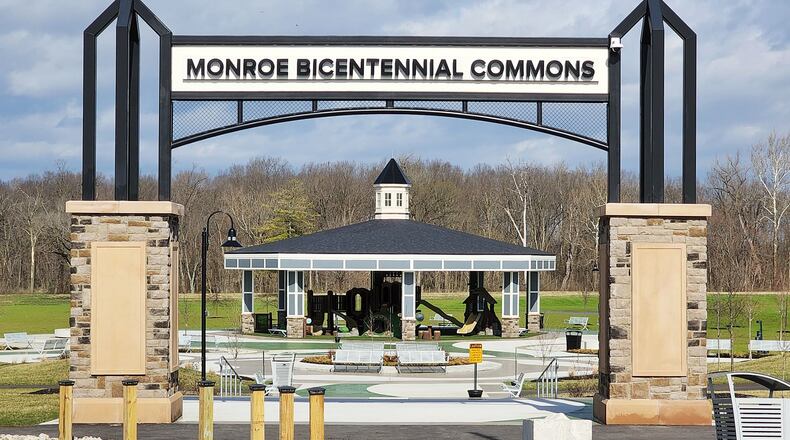Monroe officials want to hire Fishbeck Engineering to conduct a Bicentennial Commons Park Storm Water Plan study that is expected to take five months to complete and push Phase II development plans well into 2023.
The plan is divided into four sections with a total cost of $192,000. Those tasks include: field study, soil borings and subsurface geophysical investigation, hydrology analysis and storm water plan and storm water system conceptual design.
Mayor Keith Funk called the cost of the storm water plan “a drop in the bucket” compared to the whole project estimated to cost $15 million and may take 10 to 15 years to complete. The $192,000 would add 1.3% to the price.
The legislation was supposed to be an emergency resolution during Tuesday night’s City Council meeting, but members decided to make it a two-reading resolution. It passed 5-2 with council members Tom Callahan and Marc Bellapianta voting against the legislation.
The second reading will take place June 14, and if it’s read as an emergency, it must pass at least 5-2 and it would take effect immediately. As a non-emergency it must receive four “yes” votes and it would take effect after 30 days.
“That’s too much money,” Callahan said of the $192,000 price tag. “This ain’t a good deal.”
City Manager Bill Brock said he’d investigate whether the city could use some of its American Rescue Plan Act funds to finance the storm water plan that will cost about $5,000 an acre.
Council agreed the city should have conducted a similar study several years ago before Phase I was started. But that’s hindsight, they said.
Vice Mayor Christina McElfresh called spending $192,000 this late in the process “a bitter pill” to swallow but the city needs as many “viable facts” as possible.
“We have to have solid information,” she said.
Midway through the meeting, Public Works Director Gary Morton told council: “I know this is a bad look.”
But without the research, he said, the city could waste millions on the project.
Allen Aspacher, vice president/senior project manager for Fishbeck, told council 17 holes would be drilled throughout the park and radar would be used to locate the buried concrete. That information would allow the city to move some of its future projects if necessary.
“Without that,” he said, “it’s a guess.”
Morton said a project of this “magnitude” needs to have a storm water plan. Otherwise, he said, the city would spend millions on future development without correcting the drainage issues.
If that happens, he said, Bicentennial Commons “will fail.”
Morton said the city could carry forward about $1 million it budgeted to spend on the park this year and increase the 2023 budget to $2.5 million.
The city also will need to determine the best way to discharge the storm water, possibly into the lake or Great Miami River, he said.
About the Author

